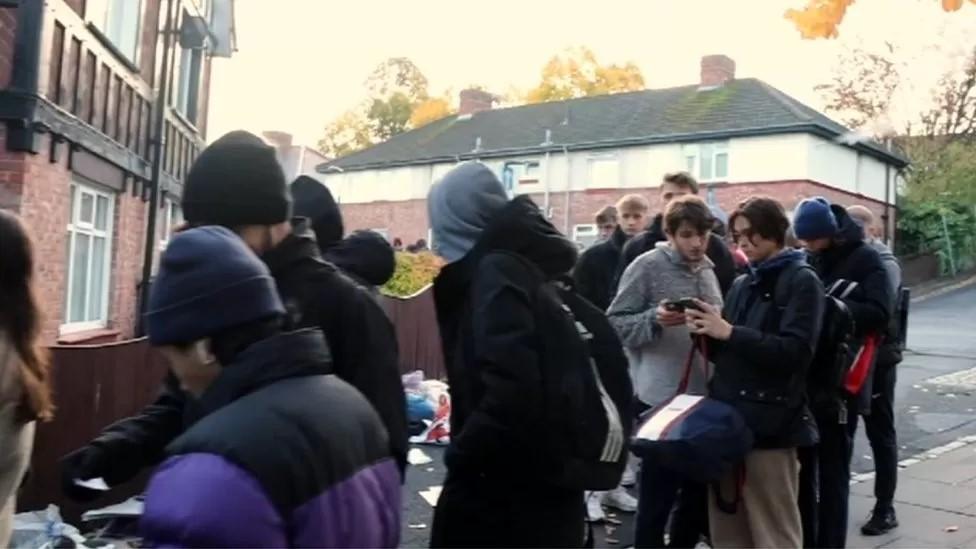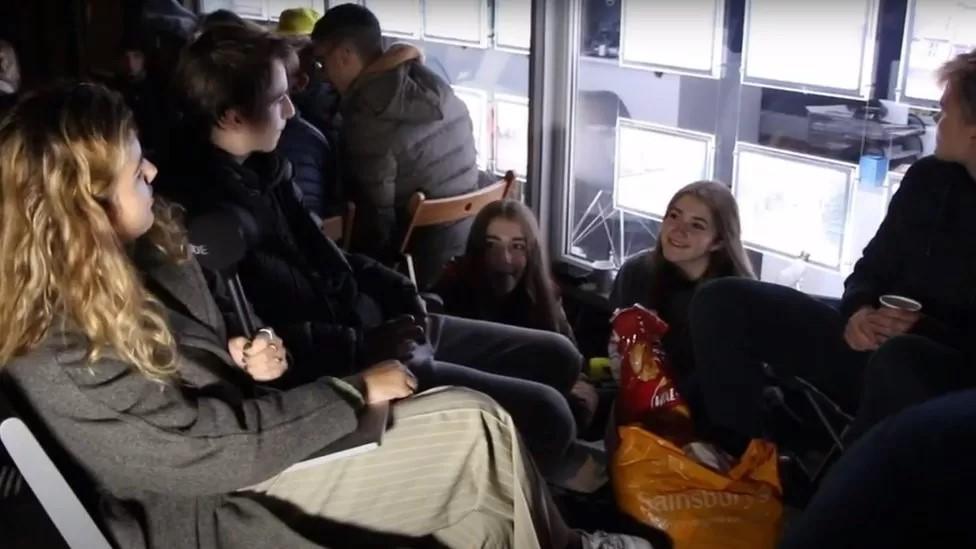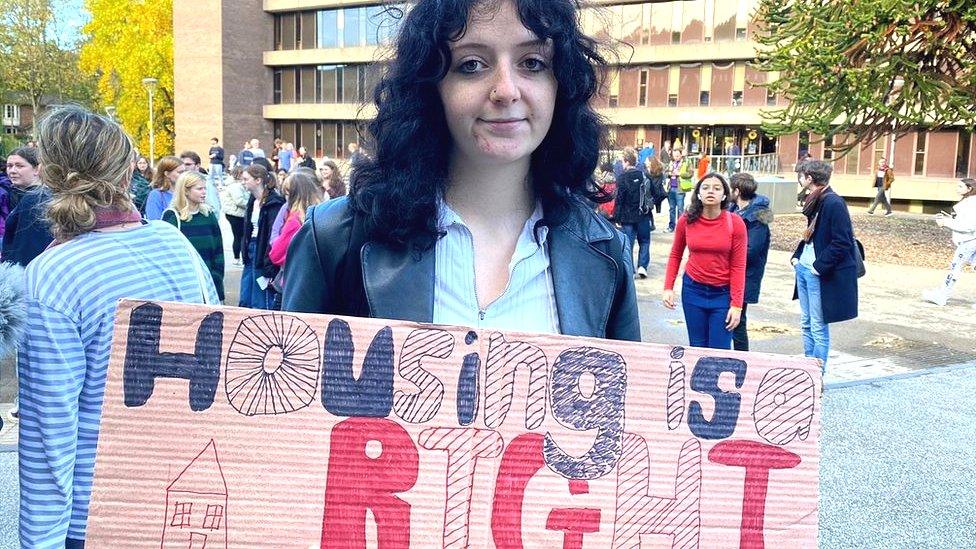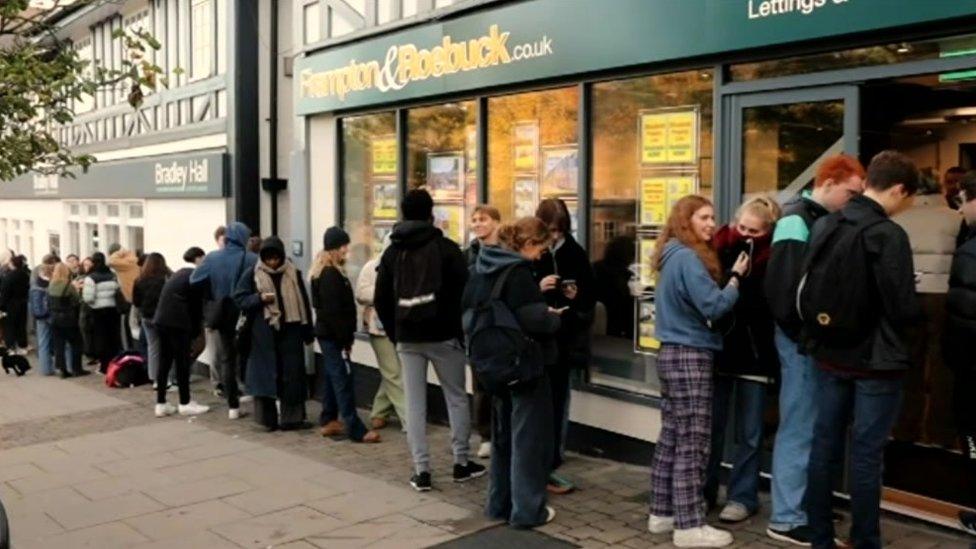Durham University: Code of practice plan to fix 'broken' student housing
- Published

Students joined long queues in October in order to secure private housing for the following year
Durham University and letting agents could sign up to a code of practice to fix the city's "broken" student housing system, under new plans.
It follows chaotic scenes in October when students queued up overnight to secure a home, amid claims of a lack of properties and rising rents.
The students' union, which backed the proposals, said it was the "first step" in addressing "long-term problems".
The university said it was "committed to improving" the housing process.
While accommodation is guaranteed for the first year, students have to find their own home for the following year just weeks after moving to the city.

Some camped overnight to find a home with reports others signed up to the first they found "in a panic"
Private housing is released by local agents in a process known as "the drop".
The new code of practice could see that stopped, as well as agreements over rent levels.
A meeting in May, chaired by City of Durham Labour MP Mary Kelly Foy, was attended by several of the city's letting agents and city leaders and saw proposals for the voluntary joint code of practice.
Laura Curran, Durham Students' Union welfare and liberation officer, told the BBC that while issues were not uncommon, the housing market had reached "a crisis point", with some landlords charging £200 per person per week.
"This is the year where we saw them at their very worst," she said.
"Students had a lack of confidence and a lack of faith with the housing market and felt that they had no choice such as take risky measures such as sleeping overnight outside the estate agents' offices and rushing to sign contracts when they heard that other students had received the same copy of them, and all for houses which were either poor quality or extortionately priced."
She said it was agreed there would be an annual meeting to look at supply and demand and when accommodation would be released, which would ideally be around November.
"If this annual meeting does become a long-term thing that could be a space where the university could influence the landlords there to talk about what the prices are like," she added.

A meeting in May, attended by letting agents, councillors and the university, was chaired by City of Durham MP, Labour's Mary Kelly Foy (centre)
Gabrielle Moore, a landlord who also owns a management company for her houses, said she was asked to release her properties at the same time as others but she refused.
"The city centre houses do go straight away every year but I think this year everybody rushed at them - I have two houses that I bought recently and they still need to be rented out," she added.
The university said it had 22,000 students for the 2022/23 academic year and it had reduced its intake by almost 1,000, having had higher-than-anticipated intakes previously due to "unexpected shifts" in the grading of A-levels.
Jeremy Cook, pro-vice-chancellor for colleges and student experience at Durham University, said: "There is much to do, and we will now work hard with all stakeholders to deliver a joint code of practice for letting student properties that we hope all parties feel able to sign."

Follow BBC North East & Cumbria on Twitter, external, Facebook, external and Instagram, external. Send your story ideas to northeastandcumbria@bbc.co.uk, external.
Related topics
- Published28 October 2022

- Published27 October 2022
